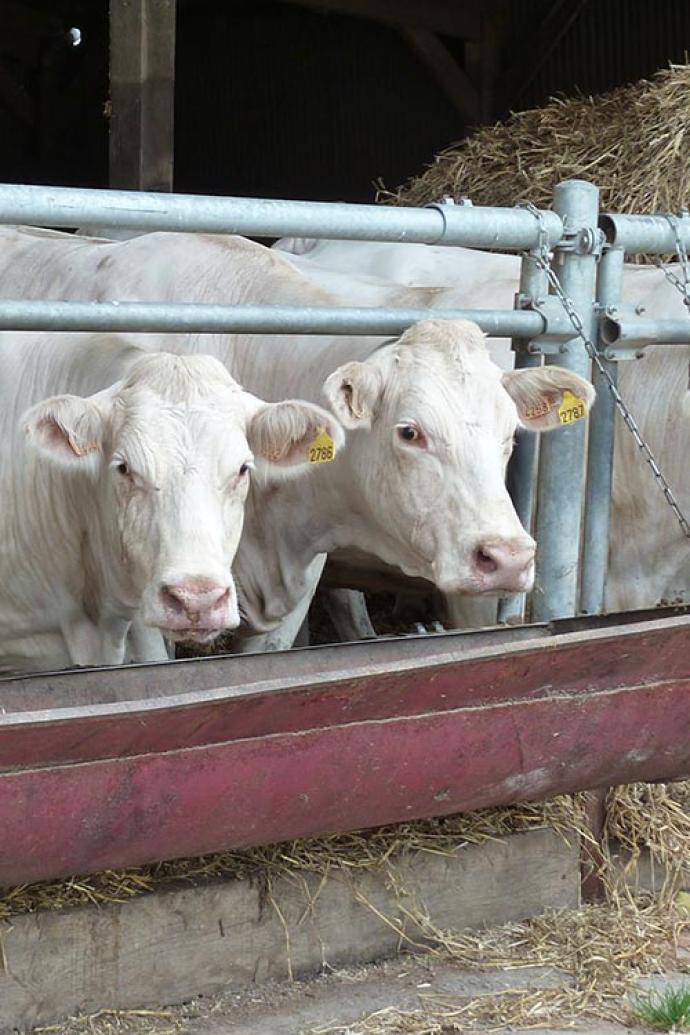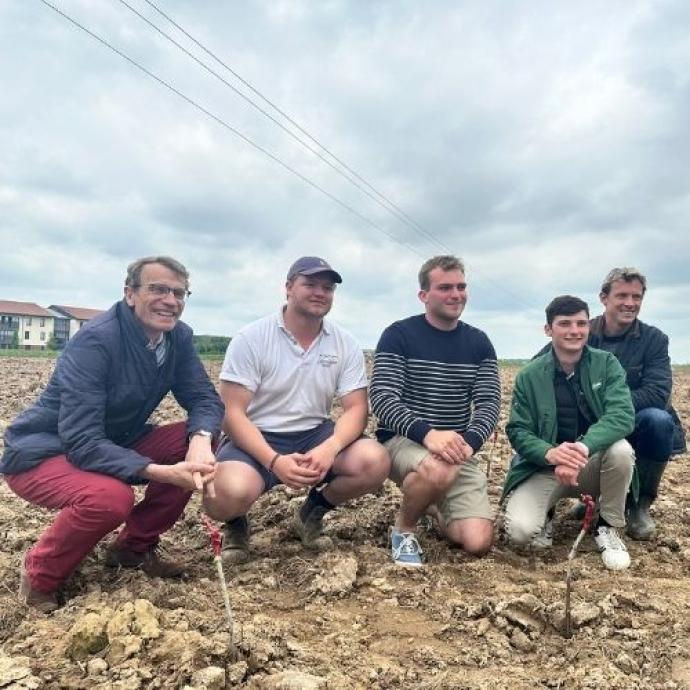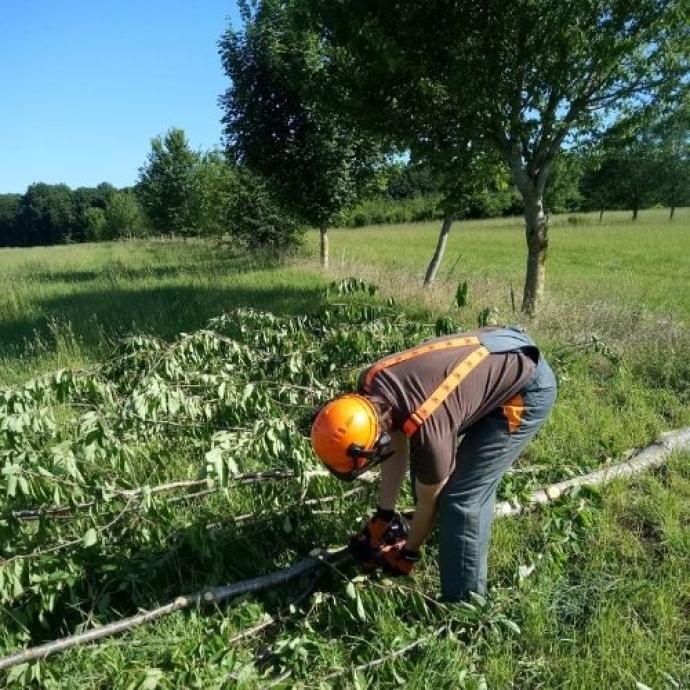The application farm allows new equipment to be tested and tried out, and innovative techniques to be developed in line with the disciplines taught and the research carried out.
From the outset, La Ferme du Bois was a place for teaching agricultural practices linked to the Institute. Since 2004, following a donation from Mr Jules HUCHER, the school has had a second site in Maurepas (Bézu-la-Forêt – Eure).
These two sites are combined and, since 2024, have represented a single farming system committed to an agri-environmental and climate measure (MAEC), plant diversification and dairy product processing projects, and short supply chains. This agroecological farm is a living laboratory for training and developing new technical knowledge.
The originality of UniLaSalle's application farm lies in its management style: here, students participate in decision-making about the farm's future direction and lead projects, on which they sometimes enjoy a great deal of autonomy.
The AgroTeam association, which acts as co-manager, brings together around ten 4th-year engineering students in Agronomy and Agro-industries organized into clusters (agronomy, livestock, equipment, processing, direct sales, environment, viticulture, etc.).
A support for teaching and research activities
The farm is an educational resource for engineering students studying agronomy and agro-industry. It provides a setting for practical work, where groups of students are responsible for monitoring a crop.
It also offers students the opportunity to gain professional experience by carrying out work focused on solving problems through study, research, and practical implementation as part of their career path.
The farm is also a resource for research. Experiments in livestock farming, in open fields or on micro-plots are carried out regularly via the agronomic platform made available to Associate Professors, research fellows and doctoral students.
Finally, plots can be made available to partners for field trials, equipment trials, crop trials or cultural practice trials, etc.
1 farm, 2 sites
Ferme du Bois – Beauvais (60)
- Polyculture system – dairy farming
- 180 hectares of usable agricultural area (UAA) + 30 hectares of woodland
- Crop rotation: wheat / rapeseed / corn / flax
- Herd of 60 Prim'Holstein cows producing 750,000 liters of milk per year
- 20 hectares dedicated to the Agricultural Research Platform
- 30 hectares of agroforestry
Ferme de Maurepas – Bézu-la-Forêt (27)
- Polyculture system – suckler herd
- 170 hectares of usable agricultural area (UAA)
- Crop rotation: wheat / beet / rapeseed / flax
- Herd of 40 Charolais cattle in a breeding system
- Direct sale of meat in boxes

The dairy processing workshop
Launched in December 2024, the dairy processing workshop aims to process 100,000 liters of milk produced on the farm each year into yogurt, cottage cheese, fresh cheese, and mozzarella. Part of this production is supplied to middle schools in the Oise region, with the rest sold through lockers located directly on the farm.
The dairy processing workshop will be used for student training and continuing education.
This project was developed in collaboration with the Agroteam team, which is also involved in the processing operations.

The vineyard
One hectare of vines was planted in June 2024 under the leadership of AgroTeam. Three white grape varieties were chosen: Muscat, Chenin, and Chardonnay, along with one red variety, Pinot Noir.
The small size of the vineyard is due to the mainly educational nature of the project. The vines are expected to produce table grapes, some of which will be processed into grape juice at the nearby FoodLab and, eventually, into wine.

Intra-plot agroforestry
Since 2010, UniLaSalle has had the largest experimental plot in the Hauts-de-France region for intra-plot agroforestry. Covering 34 hectares, the plot has 3,200 trees of 12 different species and includes several agricultural and forestry control plots, making it a highly regarded national reference plot.
It has two main objectives:
- To participate in the development of the first agronomic reference database on an agroforestry system in large-scale farming (GRACULA project)
- Achieve carbon neutrality for the systems in place: to date, emissions have been reduced by 76% (SCA0PEST and SAFARRI projects)
The plot will soon participate in a regional project aimed at making the Oise region as self-sufficient as possible in terms of energy, food, and fodder.